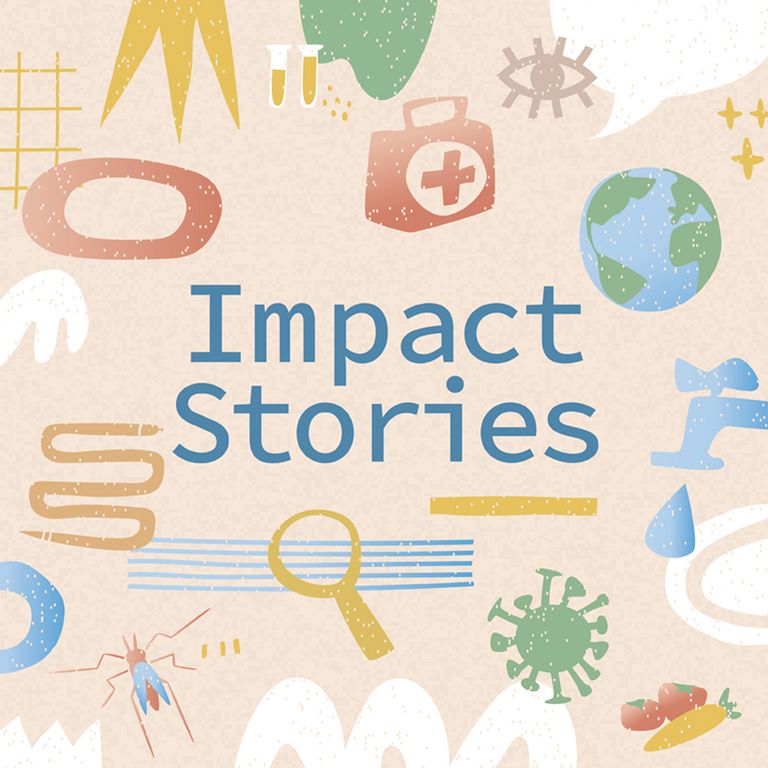

Swiss TPH Blog

In Rubavu, Rwanda, young people are taking the lead in improving community nutrition and health. Through the Nutrition in City Ecosystems (NICE) project, youth groups are helping families build kitchen gardens, promote healthy eating, and create new income opportunities. We spoke with Deo Ngoga Kalisa, Youth Coordinator for the Rubavu District, about how the NICE project inspires youth to take action and create real impact in their communities.

Rosalie Zimmermann’s fascination with distant places led her to a career in tropical and travel health. Today, she draws on her clinical background, field experience, and vaccination expertise to guide patients and travellers at the Swiss TPH Centre for Tropical and Travel Medicine. In this People of Swiss TPH interview, she reflects on her path, her work, and the challenges she encounters in her daily practice.

How can a promising innovation become part of everyday healthcare? This question lies at the heart of the IMCI-PLUS project, which explores how point-of-care lung ultrasound – a portable imaging tool that allows health workers to diagnose lung conditions directly at the patient’s bedside – can support the diagnosis and management of childhood pneumonia in primary healthcare.

International travel has become an increasingly important factor in the global rise of antibiotic-resistant bacteria. As more people cross borders than ever before, they inadvertently carry microbes with them, contributing to the silent spread of resistance. Understanding this connection is essential for developing effective strategies to protect public health worldwide.

Over the last three decades, Christian Burri has bridged the gap between laboratory discoveries and their use in the field. As Head of the Medicines Implementation Research unit at Swiss TPH, he has championed the idea that even the best drugs mean little unless they can be effectively delivered and adopted in their given context. Before his retirement, he looks back on a career defined by mentorship, partnership, and the drive to make research matter.
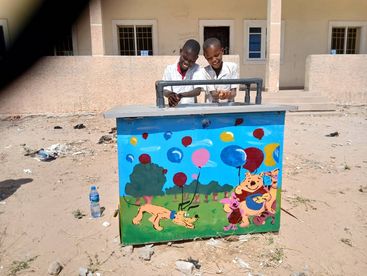
When the hands4health project came to a close, one of our goals was to ensure that the lessons and experiences gathered along the way would continue to inspire others working to improve hygiene and health. To do so, we decided to document the project’s results not only through data and reports, but through stories – narratives that bring people, challenges, and local realities to life.
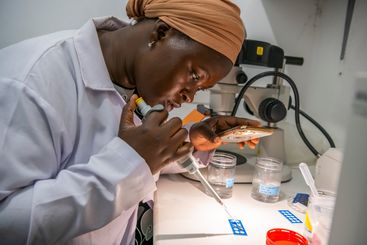
Switzerland has long provided ideal conditions to serve as a major hub for education, research and innovation. Among the instruments that sustain this reputation is the Swiss Government Excellence Scholarship (ESKAS), which enables young, talented researchers from around the world to study and collaborate at Swiss institutions. ESKAS scholarships are not only about education; they are about building bridges across continents and cultures, advancing and circulating knowledge, and ultimately strengthening the trust that underpins global research partnerships.

For Swiss TPH alumna Cristin Connor, well-being is both personal and professional. The MBA in International Health Management at Swiss TPH sharpened her ability to see health through a global lens – one she now applies daily as she leads employee health and well-being initiatives at Johnson & Johnson.
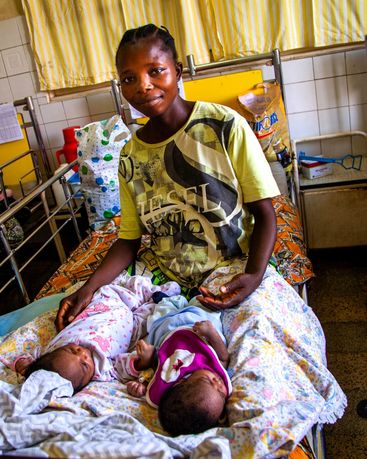
In July 2025, Swissmedic approved the first malaria treatment for newborns and young infants under 5 kg – a milestone for one of the most vulnerable patient groups. Behind this milestone lies the work of many partners and study sites, including one in the Democratic Republic of the Congo (DRC), where Swiss TPH supported clinical operations and molecular analyses as part of the CALINA trial.

The exhibition ‘Everyday Things: Life with a Chronic Condition’ provides a glimpse into the experience of living with a chronic disease. Patients, caregivers, and health workers share an everyday object and their personal story of living, adapting, and caring in the face of a chronic condition.
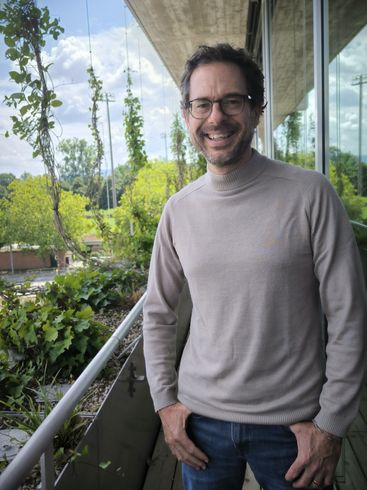
From malaria research in Tanzania to shaping Swiss policy on phone radiation, Stefan Dongus’ career at Swiss TPH reflects the institute’s broad public health mission. As part of our People of Swiss TPH series, we speak with him about his work on electromagnetic fields, the 5G Scientist app, and how citizen science can inform safer digital connectivity.
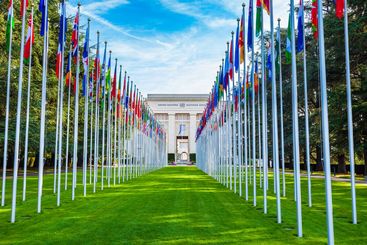
For decades, global health has been a success story. Investments in research and development, innovation, and public health have saved millions of lives, strengthened health systems, and expanded access to care for the world’s most vulnerable. But that progress is now at risk. And the implications extend far beyond the Global South. They reach also right here, into Switzerland.
Eva Herzog, President of the Swiss TPH Board of Governors, reflects why it's time for Switzerland to lead and not retreat in global health.

Climate change affects our health. We experience this first-hand during heatwaves. However, climate change is also altering the very fabric of our lives, which further impacts our health. Martina Ragettli, epidemiologist and project leader at Swiss TPH, is researching these effects. In this interview, she discusses ways of adapting to increasing heat stress and the most vulnerable groups in society, as well as her research.
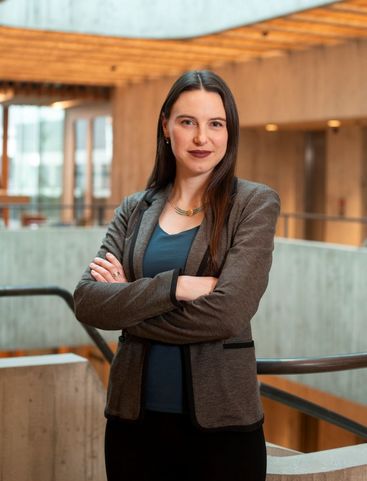
Emma Hodcroft investigates how living with viruses is changing both pathogens and humans. In light of diseases such as bird flu and Ebola, she is concerned about the US government's cuts to science and development aid.
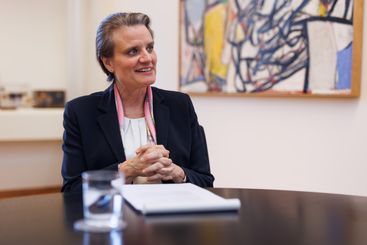
Disinformation as a global risk, growing international pressure on science, financial challenges – State Secretary Martina Hirayama discusses the importance of education, research and innovation for Switzerland, the role of international partnerships, and the contribution of institutes such as Swiss TPH.
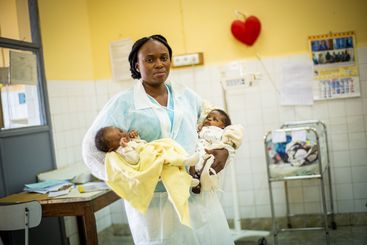
Malaria remains a major health problem, especially in sub-Saharan Africa. In 2023, the WHO reported 263 million cases and 597,000 deaths in 83 countries, mostly among young children. Swiss TPH conducts research, tests treatments and supports countries in applying and monitoring malaria control measures to improve prevention, treatment and efforts to eliminate malaria. Join us in looking back at some milestones we achieved with our partners in 2024.

Climate change is no longer a future threat – it’s a present-day health crisis. Rising temperatures, shifting weather patterns, and increasing air pollution are already affecting how and where people live, work, and stay healthy. While no one is immune, vulnerable populations – especially those with limited access to healthcare and fewer resources to adapt – are most at risk. By 2050, an estimated six billion people will be at risk of climate-related diseases such as malaria and schistosomiasis.
At Swiss TPH, the connection between environment and health has long been part of our work. But with the growing urgency of climate-related health risks, we’ve made it a strategic priority for the years ahead.

What role does gender play in our health? Sonja Merten, a professor at Swiss TPH and a lecturer at the University of Basel, discusses medical gender inequalities, menstrual health, and the importance of gender in research and teaching, particularly in the Global South, in the “Unisonar” podcast.
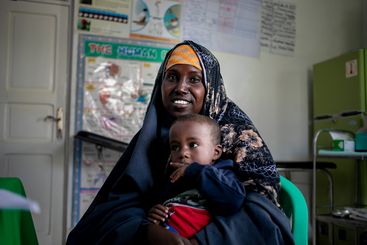
Timely and accurate diagnosis of childhood illnesses can mean the difference between life and death. Yet in many low-resource settings, frontline health workers struggle with overwhelming patient loads, limited training and inadequate infrastructure. As a result, millions of preventable child deaths occur each year. To tackle this issue, Swiss TPH is developing practical digital tools to support primary care and improve child health.
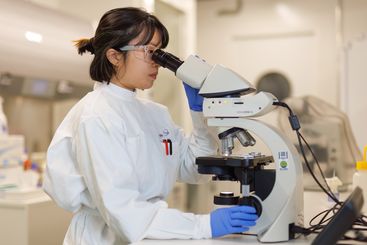
Switzerland leads the world in innovation – not by chance, but by design. For 14 years in a row, it has ranked #1 on the Global Innovation Index, thanks to its world-class universities and research institutions, strong public–private collaboration and a stable, competitive R&D environment. But expectations are changing. Invention alone is no longer enough. As health threats rise, public trust declines and budgets tighten, innovation must now be measured by what it delivers – real-world solutions with measurable impact for societies. That means bridging discovery and delivery: through translational science, policy-relevant research, and partnerships that turn ideas into impact – in Switzerland and globally.
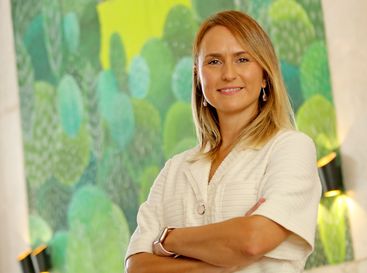
Swiss TPH alumna Ariana Bytyci Katanolli is passionate about using scientific data to drive meaningful improvements in public health. Today, she brings data to life in Kosovo, helping bridge the gap between research and policy to create smarter healthcare decisions. Her journey is a reminder that believing in yourself – and in the power of evidence – can lead to lasting change.
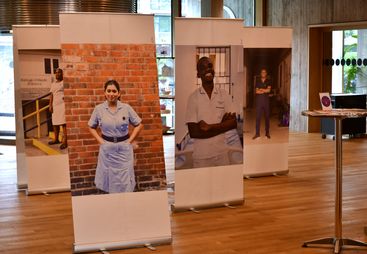
Every two minutes, a woman dies from causes related to pregnancy or childbirth – most of them preventable. On International Day of the Midwife, Leah Bohle shares Midwives of the Future, a project close to her heart that puts midwives at the centre of the conversation about maternal health.

There has never been a more important time to improve our understanding of African genomic data and deliver on the promise of better, more accessible health care for all. To this end, Roche AGP, Swiss TPH and the Centre Suisse de Recherches Scientifiques (CSRS) have launched a new collaboration to expand data collection within the CoDuBu study in Côte d’Ivoire, integrating whole genome sequencing with biomarker and environmental data to explore links between infectious and non-communicable diseases. In this article, we talk with Prof. Dr. Nicole Probst-Hensch (Swiss TPH) and Dr. Siaka Koné (CSRS) about the goals and potential of this important work.

Tuberculosis (TB) remains one of the world’s deadliest infectious diseases. While new treatments offer hope, the rise of drug-resistant TB strains threatens to reverse progress. This World TB Day, we highlight new research from Swiss TPH that aims to stay one step ahead of this growing health crisis.

Global health stands at a turning point. The USAID funding freeze and shifting donor priorities are already disrupting essential programmes—from malaria elimination and HIV treatment to critical health system support. At Swiss TPH, we see the consequences firsthand, with projects in Tanzania and Ukraine facing severe funding cuts. As investment declines, the risk of reversing decades of progress grows. Jürg Utzinger, Director of Swiss TPH, explores what is at stake and how Switzerland and other global players can step up to fill the gap.
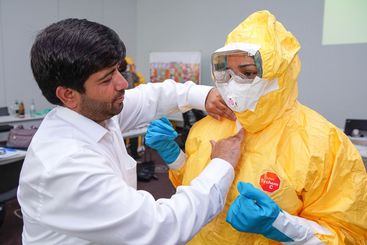
In an increasingly interconnected world, infectious diseases know no borders – as the COVID-19 pandemic reminded us. To help train health professionals from around the world to better prepare for and respond to these threats, we started the Global Partnership Initiated Biosecurity Academia for Controlling Health Threats (GIBACHT) programme in 2013. Joachim Pelikan has been part of the training since its inception. He shares about how GIBACHT equips participants through hands-on workshops with the skills and expertise they need to manage biosafety and biosecurity risks and strengthen their countries’ health systems.
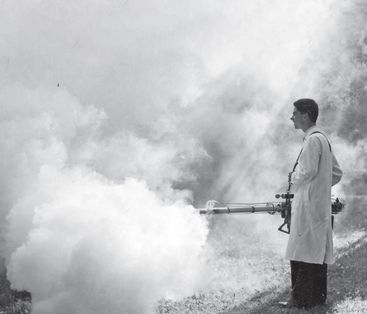
The Swiss Tropical Institute was founded in 1943 out of a fear of post-war unemployment. It was designed to promote the emigration of young people to Africa and the world’s tropical regions.
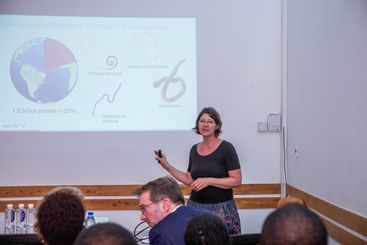
Women have played a key role in scientific discovery, driving innovation in global health. Jennifer Keiser, head of the Helminth Drug Development unit at Swiss TPH, has built a successful career in infectious disease research. In this ACS Infectious Diseases Q&A, she shares her journey, insights, and advice for aspiring scientists.

The decline of leprosy is a public health success story. However, despite being curable, the disease is still present in more than 100 countries, with 200,000 new cases diagnosed each year. Today, on World NTD Day, read about the challenges of eliminating leprosy and the work of Swiss TPH and its partners in the fight against the disease.
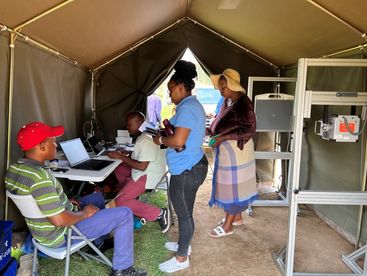
With one of the highest tuberculosis (TB) incidence rates globally and a significant TB-HIV co-infection burden, Lesotho faces a critical public health challenge. The TB TRIAGE+ project leverages cutting-edge technologies, such as AI-powered chest X-ray analysis, and community-based approaches to bridge diagnostic gaps. These groundbreaking strategies aim to improve access to TB screening and reduce transmission in remote areas.
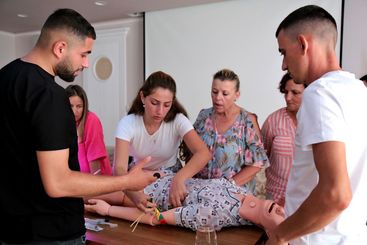
The Health for All Project (HAP) has released its latest brochure, celebrating nine years of transformative achievements in Albania’s primary healthcare. Highlighting success stories and innovations, the publication underscores HAP’s impact on healthcare quality and accessibility. Besim Nuri is a public health expert and the HAP project manager. In this interview, he speaks about home care services, the empowerment of nurses and the future of healthcare in Albania.
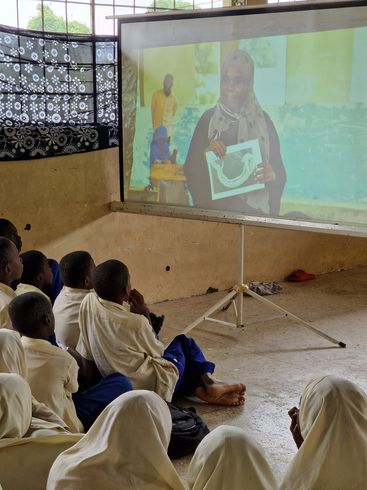
For over a decade, Swiss TPH and the Public Health Laboratory – Ivo de Carneri (PHL-IdC) in Pemba, Tanzania, have been working together with local partners to tackle schistosomiasis, a disease caused by parasitic worm infections, on Pemba Island. A new documentary offers an in-depth look at this journey, showcasing research and intervention efforts and the vital role of community engagement in driving progress towards elimination.

Breastfeeding is commonly portrayed as the most natural and instinctive way to feed a baby, with well-documented benefits for both mother and child. From improved immune protection for the baby to faster postpartum recovery for the mother, breastfeeding is often described as an invaluable part of a baby’s first 1,000 days of life. While it can be a very rewarding experience, it also comes with challenges that many women struggle with behind the scenes.
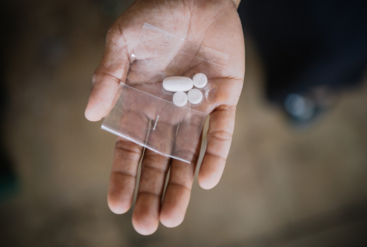
Over the past 25 years, huge progress has been made in the prevention, control and elimination of parasitic worm infections, which affect more than a billion people worldwide and pose a considerable public health burden. Mass drug administration mainly targeting school-aged children, facilitated by public-private partnerships and donations of billions of deworming drugs by pharmaceutical companies, played a key role. However, with declining infection rates and pharmaceutical companies considering an end to the large-scale drug donations, it is time to reflect on a "post-donation era." Jürg Utzinger discusses a proposed paradigm shift based on a more targeted and versatile approach that aims to deliver the right drug at the right place for the right people.

The theme of World Food Day 2024 is ‘Right to Foods for a Better Life and a Better Future’, emphasising that access to safe and nutritious food is a fundamental human right. As we celebrate this year, we are reminded that ensuring the right to food is essential for creating a more equitable and sustainable future for all.
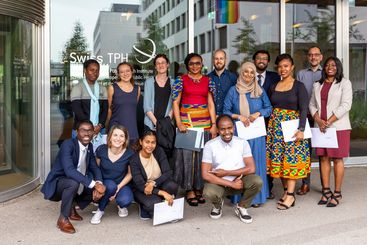
At Swiss TPH, we aim to develop the next generation of health leaders who can address public health issues around the world. Three of our DAS Health Care and Management alumni shared their experiences and the invaluable lessons they’ve learned during their time at Swiss TPH, illustrating the impact of mutual learning and the crucial role of scholarships.
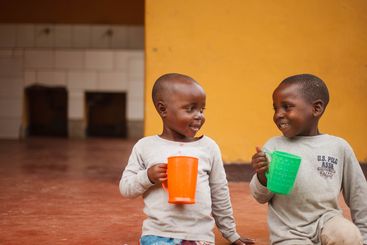
The Nutrition in City Ecosystems (NICE) project is transforming lives by improving nutrition and promoting healthier diets through locally-led actions. Across six secondary cities in Rwanda, Kenya, and Bangladesh, NICE works closely with local communities to connect consumers with farmers who produce food sustainably. The following story of Aline Ayingeneye and her son is a testament of how the NICE project is making a difference in people’s lives.

Vaccination has been one of the most powerful and transformative public health interventions in history. Over the past 50 years, vaccines have saved millions of lives, prevented the spread of deadly diseases and contributed to healthier societies around the world. As we reflect on this significant milestone in global health, it is clear that vaccines have not only changed the course of individual lives, but have also reshaped public health on a global scale. A recent landmark study published in The Lancet underscores the crucial role vaccines have played — and continue to play — in shaping a healthier world.

Olutoyin Opeyemi Ikuteyijo is a PhD student in the Society, Gender, and Health Unit within the Public Health and Epidemiology department at Swiss TPH. Her research work focuses on the experiences of sexual and gender-based violence (SGBV) faced by adolescent girls and young women in low-income communities.
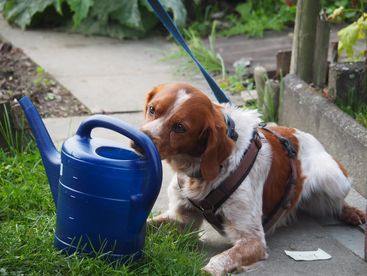
You've probably heard of truffle dogs or mine dogs. Tiger mosquito dogs might join the group of dogs with amazing sniffing abilities in the not-too-distant future, as a study of the Swiss Tropical and Public Health Institute in Allschwil suggests.

The health of humans, animals and the environment are interconnected; this is the starting point of the One Health concept. This approach guides epidemiologist Helena Greter’s research in Chad. The aim: to provide the nomads living there and their cattle herds with access to medical care. The scientist arrived at biology – and finally at epidemiology – through art.
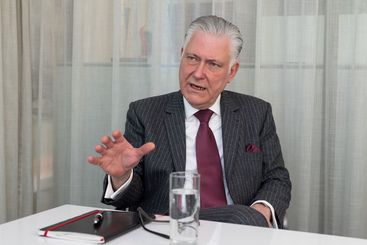
Lutz Hegemann, President of Global Health & Sustainability at Novartis, has been a member of the Board of Governors of Swiss TPH since 2023. In this interview, he tells us why he moved from being a doctor to the pharmaceutical industry, how public-private partnerships can be successful in tackling neglected diseases, and how public health priorities need to change in the face of climate change.
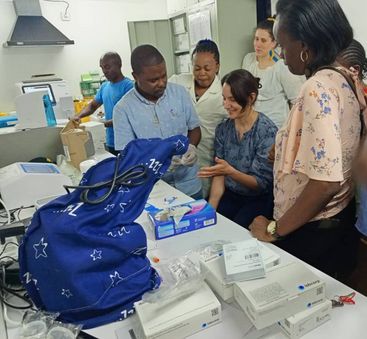
Elisabeth Reus, Head of the Clinical Operations unit at Swiss TPH, is currently in the Democratic Republic of the Congo (DRC) to launch the phase IIb trial of a new antimalarial drug in collaboration with Novartis. In this interview, she talks about the importance of patient safety, the challenges of clinical trials in low-resource settings and her personal motivation to develop better medicines for poverty-related diseases.
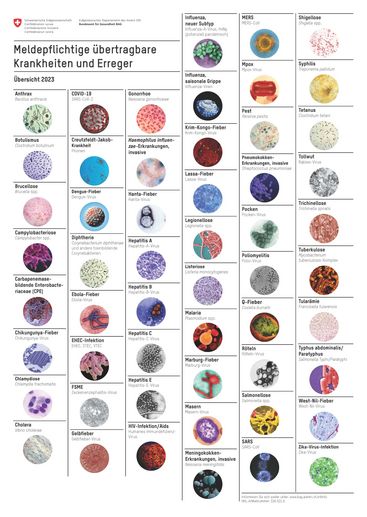
Helena Greter, Leader of the Competence Centre for Epidemiological Outbreak Investigations at Swiss TPH, talks about the role of the competence centre, looks at current outbreaks in Switzerland and explains why her job is more than just detective work.
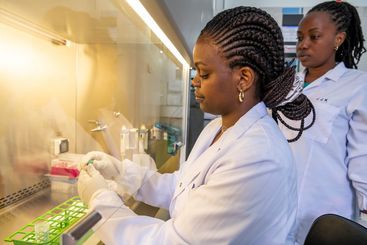
In the recent past, progress to curb malaria have been stalling. In 2022, over 600,000 people died from malaria, primarily children under the age of 5 years in sub-Saharan Africa. People living in the most vulnerable circumstances – including young children, pregnant women and refugees – continue to bear the biggest burden. Hence, it is indispensable that the global community stands together and accelerates the fight against malaria for a more equitable world where nobody is left behind.
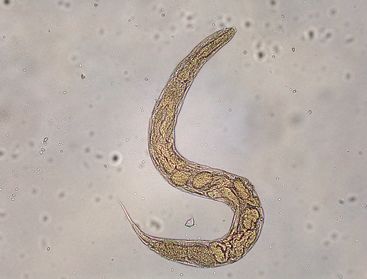
Sometimes unpleasant souvenirs are brought back from trips to tropical countries, which can give us a hard time. These stowaways may have distinguished names such as Angiostrongylus, Anisakis or Strongyloides, but the impact of these pathogens are anything but pleasant. Diarrhoea, fever or pain are just some of the unpleasant symptoms they might cause. Colloquially, the uninvited guests are called rat lungworm, herring worm and threadworm. Some of these parasitic worms can cause serious illness.
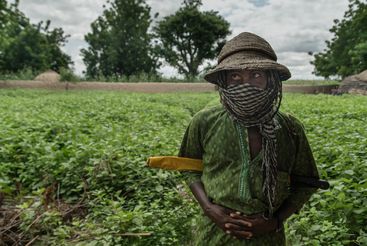
On December 15, 2023, the World Health Organization officially added noma to the list of neglected tropical diseases, which will make it easier to combat and research this poverty-related disease. Swiss TPH and the University of Basel both played a key role in ensuring noma was recognized in this manner.
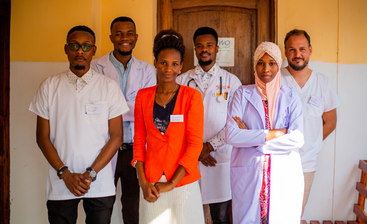
Through a rapid change of life style, cardiovascular diseases are on the rise in low- and middle-income countries. As part of his PhD at Swiss TPH, Nikolai Hodel set up the RenalTWO study to investigate cardiovascular disease risk factors linked to chronic kidney disease (CKD) in Tanzania. In this blog article, Nikolai talks about his exciting PhD project that might transition into a cohort study.
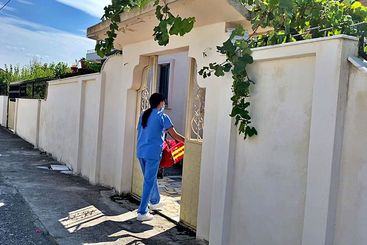
The Health for All Project (HAP) project aims to improve primary healthcare services for the Albanian population as a whole and for vulnerable groups in particular. Now in its third phase, the project can look back on eight years of high-impact implementation, whether in strengthening health management capacity, new models of home-based care services, infrastructure improvements or continuing medical education.
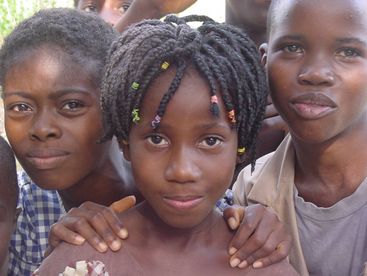
Today, we commemorate World NTD Day for the fourth time. In this article, I look back over the past 25 years and highlight key developments that have brought neglected tropical diseases (NTDs) out of the shadows and into the forefront of global health. And I look ahead in the spirit of this year’s theme: “Unite. Act. Eliminate”.
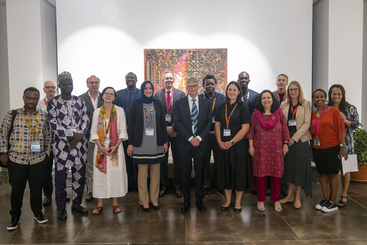
Sumaiyya Thawer, researcher and former PhD student at Swiss TPH, joined the science dinner with Bill Gates as part of the Grand Challenges annual meeting. In this impact story, she shares her experiences and new ways to improve global health that were discussed at the meeting.

Die Eidgenössische Kommission für Lufthygiene hat die neuen Empfehlungen der Weltgesundheitsorganisation (WHO) von 2021 und deren Bedeutung für die Schweizer Luftreinhalte-Verordnung bewertet. Sie kommt zum Schluss, dass der Stand des Wissens, der diesen Richtwerten zugrunde liegt, eine Anpassung der Luftreinhalteverordnung erfordert. Die derzeit gültigen Immissionsgrenzwerte für die Schadstoffe SO2, NO2, CO, O3, PM10 und PM2.5 sind mit dem vom Umweltschutzgesetz geforderten Gesundheitsschutz nicht mehr vereinbar.

How much continuous noise can we stand without falling ill? How clean does the air we breathe need to be? Limit values for noise and airborne pollution are intended to protect the population – but are also an area of conflict.
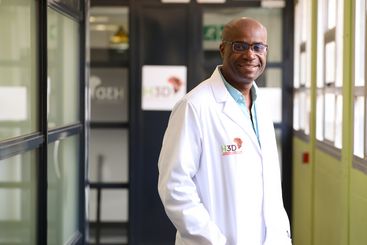
Professor Kelly Chibale is the driving force behind H3D, the drug discovery and development centre at the University of Cape Town, South Africa. He is dedicated to the development of new drugs to fight infectious diseases of poverty that are prevalent in Africa, including MMV390048, the first anti-malarial drug ever to be validated in a Phase I trial in Africa. In 2018 he was recognized as one of Fortune magazine’s top 50 ‘World’s Greatest Leaders’. Join me as I delve into the life of Kelly Chibale.
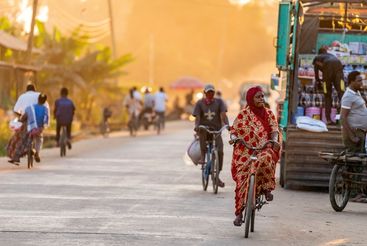
The politics of pandemics is about more than just health. It is about how we work across sectors, balancing the complex interplay between health, politics and conflicts, ensuring equity and security in times of crisis. The lessons from the COVID-19 pandemic should guide us towards a safer and more resilient future. Proactive global health governance, based on science, diplomacy and solidarity, is key to tackling future crises.
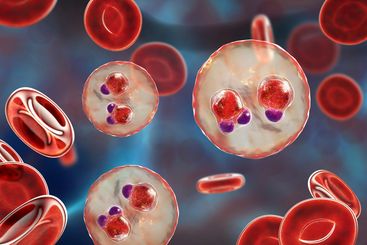
In today’s interconnected world marked by complex challenges, looking back serves as a compass for charting the way forward. As we celebrate the 80th anniversary of the Swiss Tropical and Public Health Institute (Swiss TPH), it is an opportune moment to reflect on our journey. Join me as I delve into one notable aspect of our history: the research and development (R&D) of new drugs for tropical diseases.

Nicolas Loizeau, the Swiss 5G backpacker, hikes across Switzerland with his measurement backpack. He is part of the Swiss TPH Hiking Club, which aims to assess the electrosmog exposure in Switzerland and internationally, including 5G, but also 3G, 4G, Wi-Fi, broadcasting, or magnetic fields from electric lines.

Swiss TPH has over 30 years of expertise on air pollution and its health effects on children and adults. Over the years, evidence generated by Swiss TPH researchers and partners led to policy changes that improved people’s health. Join us as we take a look back with Nicole Probst-Hensch who had a pioneering role in the research of air pollution and health.
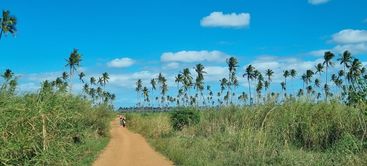
We asked our PhD students at Swiss TPH to send in videos and photos of their work abroad. These submissions provide a glimpse into their incredible work across the globe, spanning diverse research areas and geographical locations.
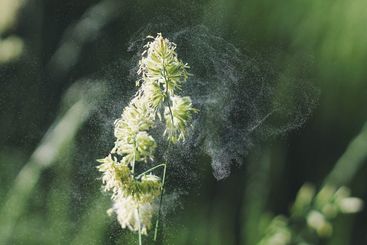
More than 20% of Switzerland's population suffers from pollen allergies, and this number is steadily increasing. The impact of climate change on pollen and its effect on our health were explored by Marloes Eeftens from Swiss TPH during her opening lecture for the "Advanced Training in Public Health Zurich*". This monthly series invites experts to examine various public health topics. Read on to learn more about her key findings.
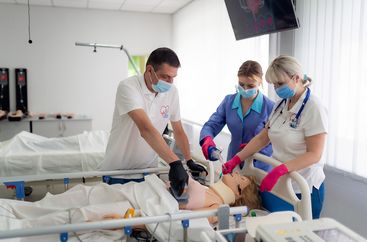
Four Ukrainian students in the Medical Education Development Project share their experiences of pursuing higher education during war. The junior and senior students share how they and their higher education institutions (HEI) navigate the many obstacles such as power-outs, air raids, and the constant psychological pressure experienced by the medical staff on a daily basis.
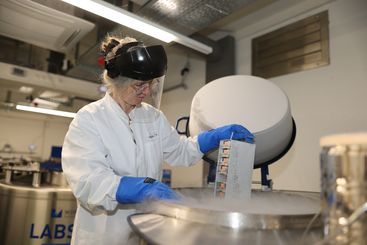
Wir leben in einer Zeit, in der Public-Health-Innovationen möglicherweise mehr zu Lebensverlängerung und Lebensqualität beitragen als medizinische Innovationen. Von dieser Idee lässt sich SAMW-Vorstandsmitglied Prof. Nicole Probst-Hensch, Professorin am Swiss Tropical and Public Health Institute (Swiss TPH), leiten. Im Schwerpunkt, der in Zusammenarbeit mit einem breit aufgestellten Team entstanden ist, zeigt sie auf, weshalb in der Schweiz finanzielle Ressourcen für Public-Health-Forschung und grosse Langzeitstudien mit Teilnehmenden aus der allgemeinen Bevölkerung nötig sind.
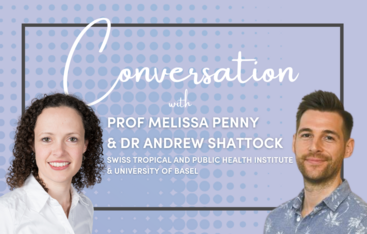
Prof Melissa Penny, Dr Andrew Shattock (Swiss Tropical and Public Health Institute, University of Basel) and colleagues have contributed to the understanding of SARS-CoV-2 dynamics and public health interventions for the pandemic. Their research has been relevant for the Swiss government and policy makers in other countries.
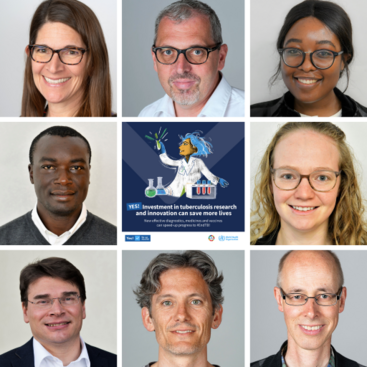
To mark World TB Day 2023, we spoke to some of our experts here at Swiss TPH about their work on tuberculosis (TB), the highlights and impact of their research, why they are committed to TB, and what they think is needed to tackle TB as a public health problem.
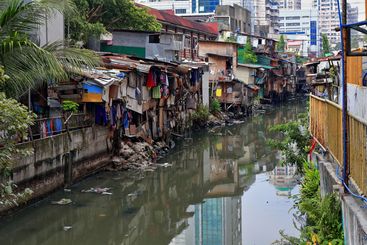
At the end of the 1940s, about 50 people per 100,000 inhabitants died of tuberculosis in Switzerland each year. Today, the figure is around 0.2 per 100,000 inhabitants per year. In Lesotho, on the other hand, the figure is a thousand times higher: in 2021, 234 people per 100,000 died of tuberculosis. How can this be? These and other questions in the fight to eliminate tuberculosis (TB) will be addressed at the hybrid TB Symposium on 21-22 March 2023 at the Swiss Tropical and Public Health Institute (Swiss TPH). Read more about the symposium at the end of the article. Below we present global TB facts and some TB figures from Switzerland.
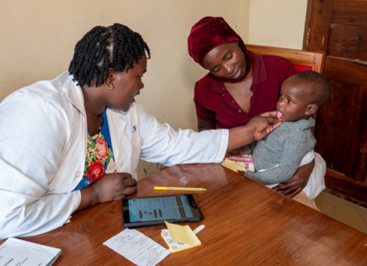
Clinical decision support systems (CDSS) – digital tools that help healthcare providers deliver evidence-based care – can improve the quality of care in resource-constrained settings. We spoke to Talia Salzmann, CDSS coordinator, and Fenella Beynon, Head of the Digital Health Unit at Swiss TPH, about the benefits and challenges of CDSS and what it takes to use them successfully.
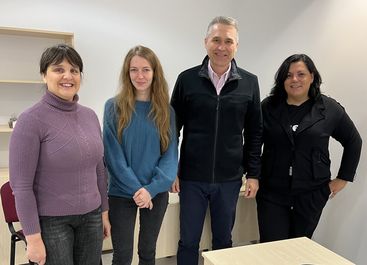
One year has passed since Russia invaded neighbouring Ukraine - an operation that military experts predicted would be over within days. But the war is still ongoing. How can a public health project be run under such circumstances? How do local people work under these challenging and life-threatening conditions? Read the story about our local colleagues in the country.

Since the end of the 20th century, a growing number of pathogens are spreading from animals to humans. Jakob Zinsstag studies these zoonotic diseases, or zoonoses, and explores how a new understanding of medicine can help fight them.
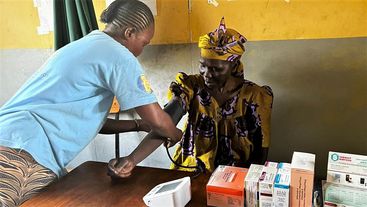
Every year, 100 million people are pushed into poverty because they have to pay out of pocket for healthcare. To make sure that people can access health services without financial hardship, many countries have committed to ensuring universal health coverage and social protection. Swiss TPH provides tailor-made support to these countries.

This years’ World AIDS Day slogan is "EQUALIZE". It is a call to action to address the ongoing inequalities holding back progress in ending AIDS. While a lot has been achieved, in some parts of the world HIV infection rates are increasing again, endangering the successes to date.
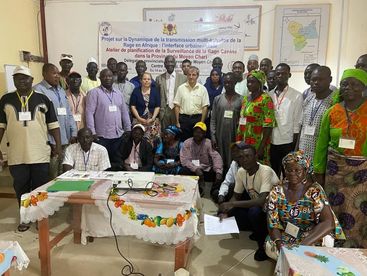
Researchers at Swiss TPH have launched a new project focused on rabies control in Chad with the help of artificial intelligence. Read more about how the research project takes a transdisciplinary One Health approach and uses public engagement and multilingual communication to achieve results.
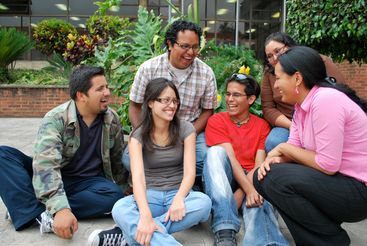
On World Mental Health Day, we spoke with Salvador Camacho, technical expert at Swiss TPH, about how a unique approach using computer simulations to test youth mental health solutions can guide decision makers on where best to invest to sustainably improve youth mental health and wellbeing.
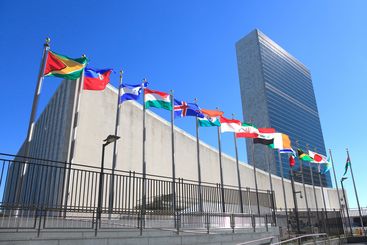
Currently, world leaders are convening at the 77th United Nations General Assembly in New York. In parallel, the Science Summit is being held, with the central theme being the role and contribution of science in attaining the Sustainable Development Goals (SDGs). Jasmina Saric reflects on the emergence, role and future of organisations that combine research and implementation for sustainable development. New findings on this topic will be presented at the Science Summit in a session convened by Swiss TPH.

Anlässlich des Internationalen Tags der sauberen Luft sprachen wir mit Ron Kappeler, wissenschaftlicher Mitarbeiter am Swiss TPH, über die Luftdokumentationsstelle LUDOK und den Einfluss von Luftverschmutzung auf Gesundheit.
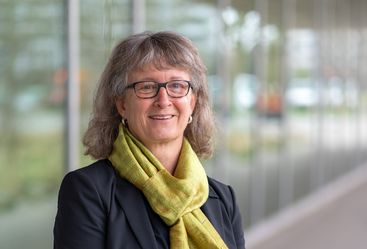
Nicole Probst-Hensch, Head of the Department of Epidemiology and Public Health at Swiss TPH and Principal Investigator of the most extensive long-term study in Switzerland, talks about the importance of long-term studies and their impact on policy.
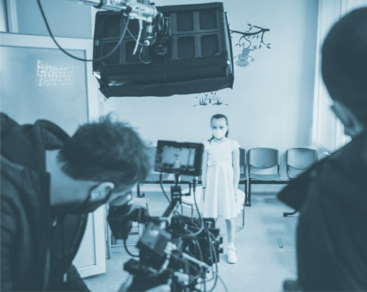
Access to information is a basic human right. In times of crisis, timely and accurate information plays an important role in controlling a situation. Our partners of the AQH project share how effective communication saved lives during the COVID-19 pandemic in Kosovo.
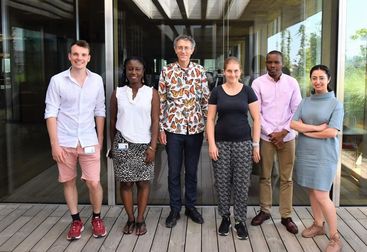
Five graduate students from Swiss TPH had the unique opportunity to participate in the Gates Notes Deep Dive on pandemic prevention. Students from all around the world came together to discuss the question: “How can we prevent the next pandemic?”
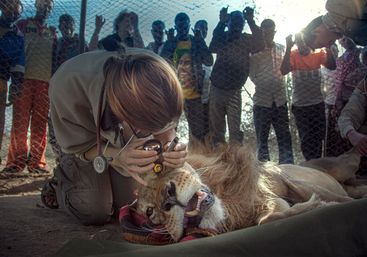
Ein einschneidendes Erlebnis in der Kindheit prägte Rea Tschopps weiteres Leben. Mit Mut und Beharrlichkeit setzt sich die Tierärztin in Äthiopien für die Gesundheit von Nomaden ein – und behandelt nebenbei kranke Raubtiere im Präsidentenpalast.

Noise is an integral part of our everyday life. Yet, it is barely ever mentioned in the sustainability debate. Martin Röösli, environmental epidemiologist at Swiss TPH, explains why this urgently needs to change.
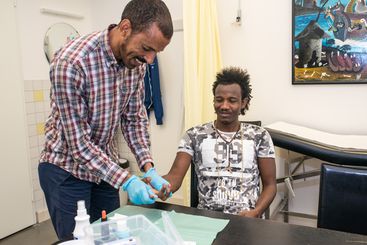
For World Refugee Day 2022, we spoke with Afona Chernet, a post-doctoral research fellow at Swiss TPH, about his experience in researching migrant and refugee health in Switzerland.

Am Wochenende erwarten wir die erste Hitzewelle des Sommers in der Schweiz. Die heissen Tage sind nicht nur unangenehm, sondern führen auch zu einer erhöhten Sterblichkeit, vor allem unter der älteren Bevölkerung. Der Hitzesommer 2015 forderte in der Schweiz beispielsweise rund 800 zusätzliche Todesfälle. Dabei spielen vor allem Herz-Kreislauf-Erkrankungen eine grosse Rolle. Und – wie eine Studie aufzeigt – wohl auch die Einnahme von gewissen Medikamenten: solche, die den Blutdruck senken oder harntreibend wirken. Die Dosierung dieser Medikamente sollte an heissen Tagen daher in Absprache mit der betreuenden Ärztin oder dem betreuenden Arzt je nachdem angepasst werden.

Die neuen Luftqualitätsleitlinien der Weltgesundheitsorganisation (WHO) fordern saubere Luft. Aus Public-Health-Sicht ist jedes Mikrogramm weniger Luftverschmutzung ein grosser Gesundheitsgewinn. Die Luftqualität muss sich national und international weiter verbessern.
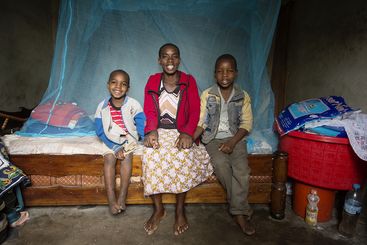
The global community has made impressive strides in malaria control and elimination, but progress has stalled. To reach eradication, we must rethink our approach.
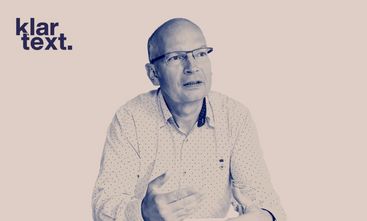
Egal ob bei tödlichen Krankheiten, radioaktiven Gasen oder 5G-Strahlung: intuitiv schätzen wir unser eigenes Risiko häufig falsch ein. Darum braucht es nun neue Ansätze, um Risiken effektiv zu kommunizieren. Dieser Text entstand als Kolumne für das Wissen-Magazin higgs.ch.
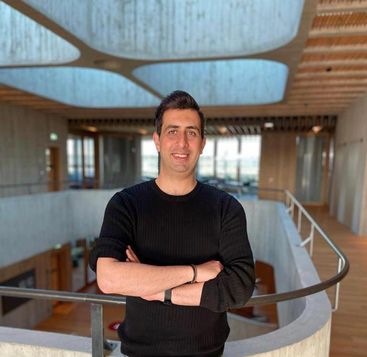
The One Health Initiative for Food Safety aims to develop a One Health approach for Palestine. We spoke to Said Abukhattab, PhD student at Swiss TPH about conducting his research in a politically unstable environment and the importance of one health as a way to improve global health.
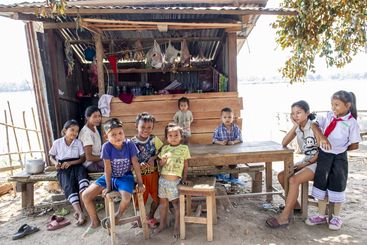
Julian Dommann, Master Student at Swiss TPH, was part of a study that found an association between gut-microbial community and drug efficacy against soil transmitted helminth infections. The original piece was first published on the Nature Portfolio Microbiology Community.

Maurice M. Nigo is the Director of the Institut Supérieur des Techniques Médicales (ISTM) in Bunia, one of the poorest provinces of the Democratic Republic of Congo (DRC). Since the 1990s, an armed conflict has been raging in the region, which further escalated in recent years and led to hundreds of thousands of the province’s population to flee their homes. For World Neglected Tropical Disease Day, we spoke to Maurice about his work and hopes for the future.
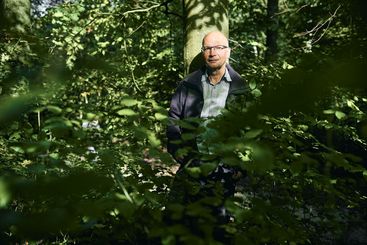
To anti-5G activists he’s like a red rag to a bull: Martin Röösli, a professor for environmental epidemiology at the Swiss Tropical and Public Health Institute in Basel. But early on in his career, he was as sceptical towards the new technologies as his opponents are today.
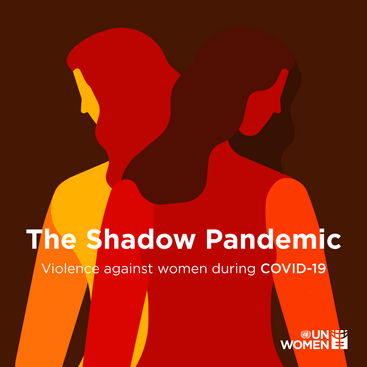
Thirty years on and the 16 Days of Activism Against Gender-based Violence (GBV) is as important now as it was in its first year. Starting annually on November 25, the International Day for the Elimination of Violence Against Women, and running for sixteen days until December 10, World Human Rights Day, the campaign has long been a rallying point for activists to demand change.
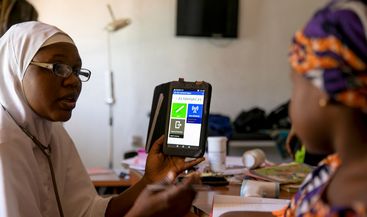
An electronic application is improving the quality of health care for children under five years old. ALMANACH, short for the Algorithm for the Management of Childhood Illness, is a user-friendly application that can be installed on tablets or smartphone and is being used by nurses and community health extension workers to properly diagnose and treat common childhood diseases.
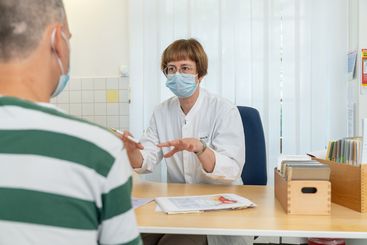
For Antimicrobial Awareness Week, Esther Künzli, Ad Interim Head of the Travel Clinic and Infectious Disease Specialist, joined us to speak about the silent killer that is currently being overshadowed by COVID-19: antimicrobial resistance (AMR). In this interview, we explore topics such as the history of AMR, the impact that is has on individuals and societies, and the need for immediate and coordinated action.
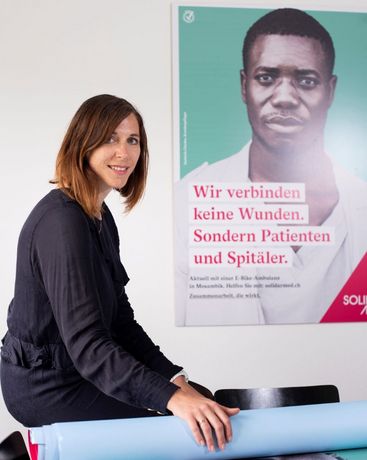
Pierina Maibach has been responsible for communications and media at SolidarMed in Lucerne, Switzerland since September 2020. The organization's core mission is to work with local partners to strengthen health systems and improve primary health care in rural Africa. The focus is on mother-child health and infectious diseases, but also non-communicable diseases.

The MBA in International Health Management (MBA-IHM) has been on the road to success since it launched in 2013. Behind the comprehensive programme structure lies a great deal of work and organization. In an interview with the main drivers of the MBA-IHM — Julia Bohlius, Axel Hoffmann and Barbara Bürkin — we talk about the early days of the programme, the challenges and opportunities presented by COVID-19 and where the programme is headed.
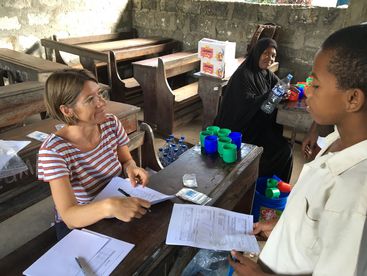
The young Jennifer Keiser grew up in Munich, Germany, and followed both her grandfather (a chemist) and her older sister (medicine) into a life of science. While studying in high school, she worked part-time in a pharmacy, and became fascinated by medicinal drugs and their structure and function. “Rather than become a medical doctor, I thought pharmacy would offer the most rewarding career for me”, Keiser told The Lancet Infectious Diseases. Today, she is head of the Helminth Drug Development Unit at the Swiss Tropical and Public Health Institute (Swiss TPH), an associated institute of the University of Basel, in Switzerland.

Melissa Penny is an applied mathematician at Swiss TPH who has worked in public health and infectious disease modelling for over 15 years. She joins us today to discuss the first malaria vaccine, disease modelling and the future of malaria eradication.
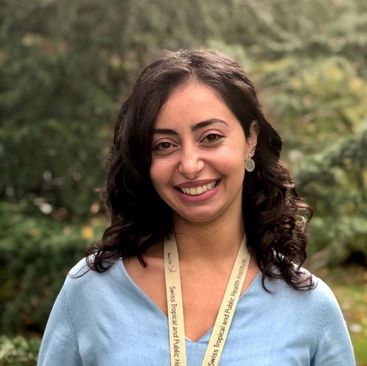
Lujain Alchalabi is a Syrian refugee and an Epidemiology master student at Swiss TPH. She came to Switzerland after leaving behind her home and career as a dentist, having no idea what she would do besides seeking safety. By overcoming many challenges through her asylum process, Lujain started an independent life as a student with a part time job. Read on about Lujain’s journey to Switzerland and her recent participation in „Zeit gegen Rassismus” in cooperation Radio X on the topic of racism in academia.
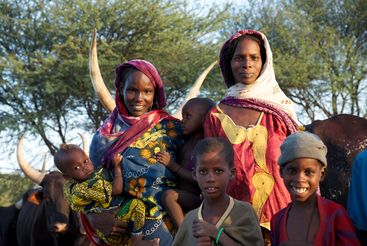
What do health and spirituality have to do with each other? Jakob Zinsstag, Head of the Human and Animal Health Unit at Swiss TPH, has worked in many places around the world and met people with different religious and non-religious traditions, views and attitudes. Time and again, he has realised that the understanding of health and well-being has many dimensions and that in his view, a holistic approach to health should include not only scientific but also spiritual aspects.
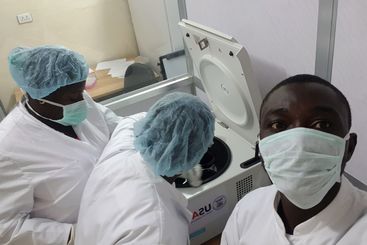
Rabies is deadly, but 99.9% vaccine-preventable. Children under 15 years in rural communities around the globe are at higher risk of being exposed to rabies. Controlling rabies widespread in endemic countries will largely depend on responsible dog owners, dog mass vaccination, awareness, and the appropriate administration of post-exposure prophylaxis (PEP) for bite victims. Garmie Voupawoe, a PhD student at Swiss TPH, talks about his research on rabies burden and control in Liberia.
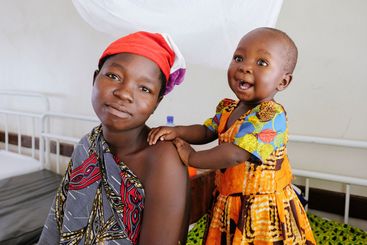
Great strides have been made in the fight against neglected tropical diseases over the past 20 years, but the global burden is still considerable. In order to end the neglect, novel tools and innovative approaches are needed.
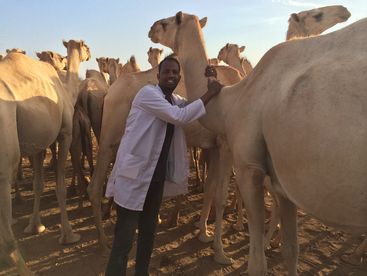
The specific needs of nomadic pastoralist communities are often not considered in public services. This is also the case in the health sector. In Ethiopia, the Swiss Agency for Development and Cooperation is supporting the establishment of a regional One Health centre of excellence with the aim to improve the health and wellbeing of pastoralist communities in the Horn of Africa.

For academics, the platform is becoming more popular. Twitter allows you to easily promote your research and build your network by providing links to your professional achievements, journal articles, research findings or topics of interest and reach a large number of people through tweets and retweets. At first, having an additional social network account may look overwhelming; however learning how to use this tool in the right way is very straightforward.
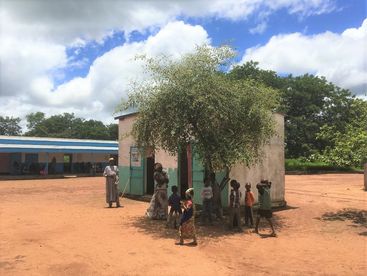
Access to healthcare is an additional burden for forcibly displaced people, which adds to their already extremely difficult situations. On World Refugee Day, Swiss TPH is proud to engage in several projects pertaining to refugees and migrant health. Barbara Matthys, a public health specialist at Swiss TPH, speaks about one project in particular: the Digital System for Better Health Care Management of Refugee Project (SysRef).
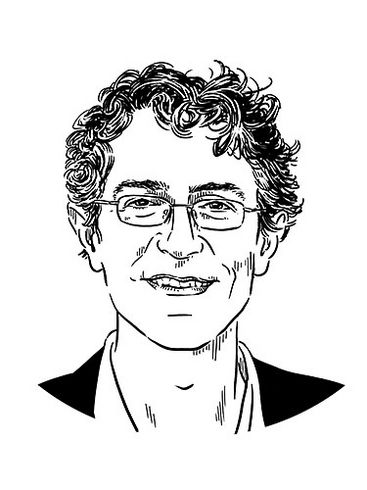
Jürg Utzinger is the Director of Swiss TPH and a Professor of Epidemiology at the University of Basel. His research and teaching focuses on neglected tropical diseases and the health effects of large-scale projects in low- and middle-income countries. He spoke to the University of Basel about Switzerland's handling of the pandemic so far from an epidemiological perspective.
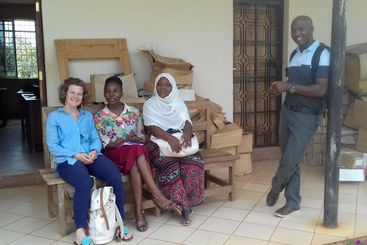
Andrea Leuenberger, a young researcher at Swiss TPH, was one of the PhD students who participated in the Digital Storytellers project of the r4d programme, a Swiss programme that supports research aimed at solving global issues for development, with a focus on low- and middle- income countries. Andrea spoke to us about her work on the health impacts of natural resource extraction on surrounding communities in Tanzania, and the power of storytelling through video in research.
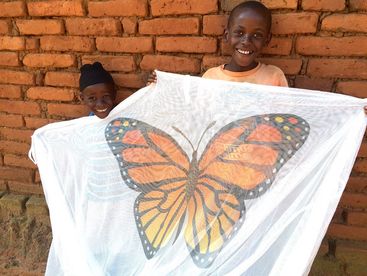
A world without malaria is within reach. At the same time, the COVID-19 pandemic threatens progress in the fight against malaria. This year's World Malaria Day on 25 April 2021 will draw attention to the fact that further efforts are needed to achieve the goal of a malaria-free world.

Mosquitoes infect millions of people with malaria - a disease that kills a child every two minutes. Most of these deaths occur in the poorest countries with the weakest health systems. Over the past 20 years, much has been invested in malaria prevention and treatment, resulting in the prevention of over 7.6 million malaria deaths. The progress made in the fight against malaria is one of the greatest success stories in global health, however, these successes are threatened by the Covid-19 pandemic.
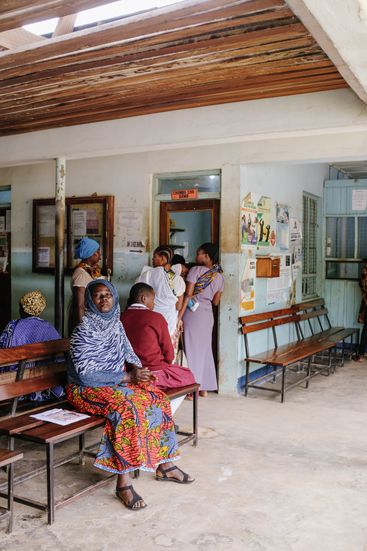
When looking at trends in unwanted pregnancies and abortions worldwide, a lot has changed over the past 30 years. The most shocking trend? The number of unwanted pregnancies that end in abortion: 61% to be exact. "The results are alarming and show how desperate women are in some restrictive country settings: they terminate unwanted pregnancies, even though they can be punished by law, and they risk becoming infected or even dying as a consequence," says Kate Molesworth.
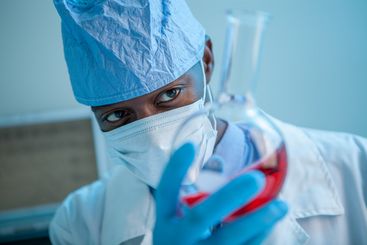
The COVID-19 pandemic has resulted in serious collateral damage to many health and social systems worldwide; especially in Africa. At the same time, the crisis also revealed great potential for innovation in research and development of new drugs and vaccines.
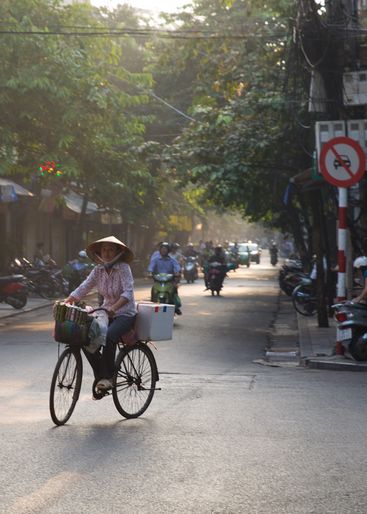
As with COVID-19, the global health impacts of climate change are difficult to imagine but scientifically predictable. In the COVID-19 crisis, we were forced to change behaviours that had rarely been questioned in our daily routine. If we do not just dismiss 2020 and go back to life as we knew it, but rather let these experiences guide us, a triple win beckons: improving public health, creating a sustainable economy and protecting the environment.

Women’s History Month marks a special time in our calendars. It’s the month in which societies take a moment to recognize and amplify the achievements, contributions, voices and value of women in all their diversity to society. Tamsin Lee and Carmen Sant, two founders of the Diversity & Inclusion network at Swiss TPH, reflect on the two years that have passed since the inauguration of the network, and the work that lies ahead.
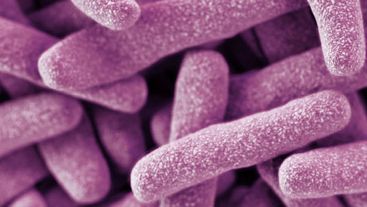
World Tuberculosis (TB) Day on the 24 March marks the day in 1882 when Robert Koch discovered the TB Bacillus, known today as Mycobacterium tuberculosis. More than 100 years later, TB remains one of humankind’s most deadly infectious diseases. Sebastien Gagneux of Swiss TPH addresses the challenges that we face in the fight against TB and where we are in understanding this deadly pathogen.
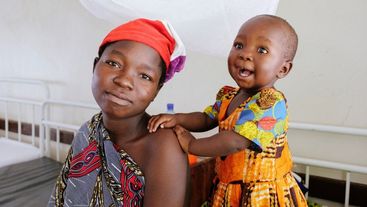
Vaccine hesitancy is on the rise worldwide, so much so that the World Health Organization identified it as one of the top 10 threats to global health in 2019. Since the 1950’s vaccines have helped protect millions of people against diseases such as polio, meningitis and hepatitis, with new vaccines being developed all the time. But while vaccines have become more effective and widely available, not everybody wants them. So what’s going on?
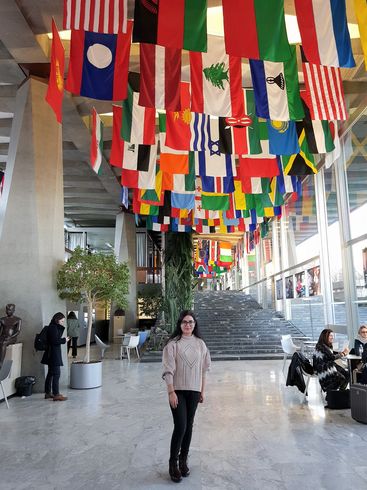
Maryam Tavakkoli, a PhD student at Swiss TPH, researches road traffic evidence and information systems. "Studying at Swiss TPH has opened so many doors for me, like when I got to travel to the 2019 Unleash innovation lab in China and my dream come true—starting an internship at the WHO headquarters in Geneva."
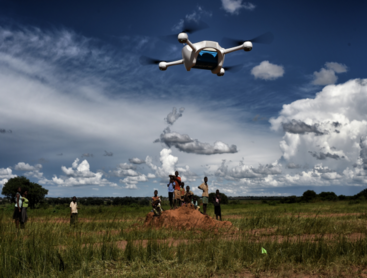
Stepping foot in Madagascar for the first time, Astrid Knoblauch was full of anticipation: surrounded by the song of the red fody birds and the vibration of a rusty Peugeot whizzing around, she was about to embark on an adventure that involved diving head-first into a new culture, getting bitten by a Fosa, and the use of drones for healthcare delivery.
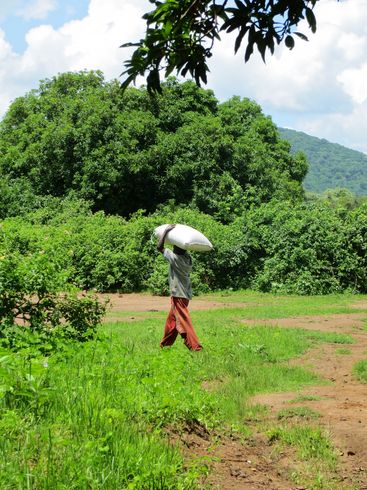
Even if you have never traveled to rural areas of sub-Saharan Africa, you have likely seen the images on TV: the bright orange soil and the beautiful clusters of straw-covered houses surrounded by gorgeous baobab trees and endless fields. But despite this beauty, the image of nature being in perfect harmony is an illusion as seasonal hunger remains a reality for many small-scale farmers, imploring the question: can we fix it?

In Rubavu, Rwanda, young people are taking the lead in improving community nutrition and health. Through the Nutrition in City Ecosystems (NICE) project, youth groups are helping families build kitchen gardens, promote healthy eating, and create new income opportunities. We spoke with Deo Ngoga Kalisa, Youth Coordinator for the Rubavu District, about how the NICE project inspires youth to take action and create real impact in their communities.

International travel has become an increasingly important factor in the global rise of antibiotic-resistant bacteria. As more people cross borders than ever before, they inadvertently carry microbes with them, contributing to the silent spread of resistance. Understanding this connection is essential for developing effective strategies to protect public health worldwide.

Switzerland has long provided ideal conditions to serve as a major hub for education, research and innovation. Among the instruments that sustain this reputation is the Swiss Government Excellence Scholarship (ESKAS), which enables young, talented researchers from around the world to study and collaborate at Swiss institutions. ESKAS scholarships are not only about education; they are about building bridges across continents and cultures, advancing and circulating knowledge, and ultimately strengthening the trust that underpins global research partnerships.

The exhibition ‘Everyday Things: Life with a Chronic Condition’ provides a glimpse into the experience of living with a chronic disease. Patients, caregivers, and health workers share an everyday object and their personal story of living, adapting, and caring in the face of a chronic condition.

Climate change affects our health. We experience this first-hand during heatwaves. However, climate change is also altering the very fabric of our lives, which further impacts our health. Martina Ragettli, epidemiologist and project leader at Swiss TPH, is researching these effects. In this interview, she discusses ways of adapting to increasing heat stress and the most vulnerable groups in society, as well as her research.

Malaria remains a major health problem, especially in sub-Saharan Africa. In 2023, the WHO reported 263 million cases and 597,000 deaths in 83 countries, mostly among young children. Swiss TPH conducts research, tests treatments and supports countries in applying and monitoring malaria control measures to improve prevention, treatment and efforts to eliminate malaria. Join us in looking back at some milestones we achieved with our partners in 2024.

Timely and accurate diagnosis of childhood illnesses can mean the difference between life and death. Yet in many low-resource settings, frontline health workers struggle with overwhelming patient loads, limited training and inadequate infrastructure. As a result, millions of preventable child deaths occur each year. To tackle this issue, Swiss TPH is developing practical digital tools to support primary care and improve child health.

Every two minutes, a woman dies from causes related to pregnancy or childbirth – most of them preventable. On International Day of the Midwife, Leah Bohle shares Midwives of the Future, a project close to her heart that puts midwives at the centre of the conversation about maternal health.

Global health stands at a turning point. The USAID funding freeze and shifting donor priorities are already disrupting essential programmes—from malaria elimination and HIV treatment to critical health system support. At Swiss TPH, we see the consequences firsthand, with projects in Tanzania and Ukraine facing severe funding cuts. As investment declines, the risk of reversing decades of progress grows. Jürg Utzinger, Director of Swiss TPH, explores what is at stake and how Switzerland and other global players can step up to fill the gap.

Women have played a key role in scientific discovery, driving innovation in global health. Jennifer Keiser, head of the Helminth Drug Development unit at Swiss TPH, has built a successful career in infectious disease research. In this ACS Infectious Diseases Q&A, she shares her journey, insights, and advice for aspiring scientists.

The Health for All Project (HAP) has released its latest brochure, celebrating nine years of transformative achievements in Albania’s primary healthcare. Highlighting success stories and innovations, the publication underscores HAP’s impact on healthcare quality and accessibility. Besim Nuri is a public health expert and the HAP project manager. In this interview, he speaks about home care services, the empowerment of nurses and the future of healthcare in Albania.

Over the past 25 years, huge progress has been made in the prevention, control and elimination of parasitic worm infections, which affect more than a billion people worldwide and pose a considerable public health burden. Mass drug administration mainly targeting school-aged children, facilitated by public-private partnerships and donations of billions of deworming drugs by pharmaceutical companies, played a key role. However, with declining infection rates and pharmaceutical companies considering an end to the large-scale drug donations, it is time to reflect on a "post-donation era." Jürg Utzinger discusses a proposed paradigm shift based on a more targeted and versatile approach that aims to deliver the right drug at the right place for the right people.

The Nutrition in City Ecosystems (NICE) project is transforming lives by improving nutrition and promoting healthier diets through locally-led actions. Across six secondary cities in Rwanda, Kenya, and Bangladesh, NICE works closely with local communities to connect consumers with farmers who produce food sustainably. The following story of Aline Ayingeneye and her son is a testament of how the NICE project is making a difference in people’s lives.

You've probably heard of truffle dogs or mine dogs. Tiger mosquito dogs might join the group of dogs with amazing sniffing abilities in the not-too-distant future, as a study of the Swiss Tropical and Public Health Institute in Allschwil suggests.

Elisabeth Reus, Head of the Clinical Operations unit at Swiss TPH, is currently in the Democratic Republic of the Congo (DRC) to launch the phase IIb trial of a new antimalarial drug in collaboration with Novartis. In this interview, she talks about the importance of patient safety, the challenges of clinical trials in low-resource settings and her personal motivation to develop better medicines for poverty-related diseases.

Sometimes unpleasant souvenirs are brought back from trips to tropical countries, which can give us a hard time. These stowaways may have distinguished names such as Angiostrongylus, Anisakis or Strongyloides, but the impact of these pathogens are anything but pleasant. Diarrhoea, fever or pain are just some of the unpleasant symptoms they might cause. Colloquially, the uninvited guests are called rat lungworm, herring worm and threadworm. Some of these parasitic worms can cause serious illness.

The Health for All Project (HAP) project aims to improve primary healthcare services for the Albanian population as a whole and for vulnerable groups in particular. Now in its third phase, the project can look back on eight years of high-impact implementation, whether in strengthening health management capacity, new models of home-based care services, infrastructure improvements or continuing medical education.

Die Eidgenössische Kommission für Lufthygiene hat die neuen Empfehlungen der Weltgesundheitsorganisation (WHO) von 2021 und deren Bedeutung für die Schweizer Luftreinhalte-Verordnung bewertet. Sie kommt zum Schluss, dass der Stand des Wissens, der diesen Richtwerten zugrunde liegt, eine Anpassung der Luftreinhalteverordnung erfordert. Die derzeit gültigen Immissionsgrenzwerte für die Schadstoffe SO2, NO2, CO, O3, PM10 und PM2.5 sind mit dem vom Umweltschutzgesetz geforderten Gesundheitsschutz nicht mehr vereinbar.

The politics of pandemics is about more than just health. It is about how we work across sectors, balancing the complex interplay between health, politics and conflicts, ensuring equity and security in times of crisis. The lessons from the COVID-19 pandemic should guide us towards a safer and more resilient future. Proactive global health governance, based on science, diplomacy and solidarity, is key to tackling future crises.

Swiss TPH has over 30 years of expertise on air pollution and its health effects on children and adults. Over the years, evidence generated by Swiss TPH researchers and partners led to policy changes that improved people’s health. Join us as we take a look back with Nicole Probst-Hensch who had a pioneering role in the research of air pollution and health.

Four Ukrainian students in the Medical Education Development Project share their experiences of pursuing higher education during war. The junior and senior students share how they and their higher education institutions (HEI) navigate the many obstacles such as power-outs, air raids, and the constant psychological pressure experienced by the medical staff on a daily basis.

To mark World TB Day 2023, we spoke to some of our experts here at Swiss TPH about their work on tuberculosis (TB), the highlights and impact of their research, why they are committed to TB, and what they think is needed to tackle TB as a public health problem.

One year has passed since Russia invaded neighbouring Ukraine - an operation that military experts predicted would be over within days. But the war is still ongoing. How can a public health project be run under such circumstances? How do local people work under these challenging and life-threatening conditions? Read the story about our local colleagues in the country.

This years’ World AIDS Day slogan is "EQUALIZE". It is a call to action to address the ongoing inequalities holding back progress in ending AIDS. While a lot has been achieved, in some parts of the world HIV infection rates are increasing again, endangering the successes to date.

Currently, world leaders are convening at the 77th United Nations General Assembly in New York. In parallel, the Science Summit is being held, with the central theme being the role and contribution of science in attaining the Sustainable Development Goals (SDGs). Jasmina Saric reflects on the emergence, role and future of organisations that combine research and implementation for sustainable development. New findings on this topic will be presented at the Science Summit in a session convened by Swiss TPH.

Access to information is a basic human right. In times of crisis, timely and accurate information plays an important role in controlling a situation. Our partners of the AQH project share how effective communication saved lives during the COVID-19 pandemic in Kosovo.

Noise is an integral part of our everyday life. Yet, it is barely ever mentioned in the sustainability debate. Martin Röösli, environmental epidemiologist at Swiss TPH, explains why this urgently needs to change.

Die neuen Luftqualitätsleitlinien der Weltgesundheitsorganisation (WHO) fordern saubere Luft. Aus Public-Health-Sicht ist jedes Mikrogramm weniger Luftverschmutzung ein grosser Gesundheitsgewinn. Die Luftqualität muss sich national und international weiter verbessern.

The One Health Initiative for Food Safety aims to develop a One Health approach for Palestine. We spoke to Said Abukhattab, PhD student at Swiss TPH about conducting his research in a politically unstable environment and the importance of one health as a way to improve global health.

To anti-5G activists he’s like a red rag to a bull: Martin Röösli, a professor for environmental epidemiology at the Swiss Tropical and Public Health Institute in Basel. But early on in his career, he was as sceptical towards the new technologies as his opponents are today.

For Antimicrobial Awareness Week, Esther Künzli, Ad Interim Head of the Travel Clinic and Infectious Disease Specialist, joined us to speak about the silent killer that is currently being overshadowed by COVID-19: antimicrobial resistance (AMR). In this interview, we explore topics such as the history of AMR, the impact that is has on individuals and societies, and the need for immediate and coordinated action.

The young Jennifer Keiser grew up in Munich, Germany, and followed both her grandfather (a chemist) and her older sister (medicine) into a life of science. While studying in high school, she worked part-time in a pharmacy, and became fascinated by medicinal drugs and their structure and function. “Rather than become a medical doctor, I thought pharmacy would offer the most rewarding career for me”, Keiser told The Lancet Infectious Diseases. Today, she is head of the Helminth Drug Development Unit at the Swiss Tropical and Public Health Institute (Swiss TPH), an associated institute of the University of Basel, in Switzerland.

What do health and spirituality have to do with each other? Jakob Zinsstag, Head of the Human and Animal Health Unit at Swiss TPH, has worked in many places around the world and met people with different religious and non-religious traditions, views and attitudes. Time and again, he has realised that the understanding of health and well-being has many dimensions and that in his view, a holistic approach to health should include not only scientific but also spiritual aspects.

The specific needs of nomadic pastoralist communities are often not considered in public services. This is also the case in the health sector. In Ethiopia, the Swiss Agency for Development and Cooperation is supporting the establishment of a regional One Health centre of excellence with the aim to improve the health and wellbeing of pastoralist communities in the Horn of Africa.

Jürg Utzinger is the Director of Swiss TPH and a Professor of Epidemiology at the University of Basel. His research and teaching focuses on neglected tropical diseases and the health effects of large-scale projects in low- and middle-income countries. He spoke to the University of Basel about Switzerland's handling of the pandemic so far from an epidemiological perspective.

Mosquitoes infect millions of people with malaria - a disease that kills a child every two minutes. Most of these deaths occur in the poorest countries with the weakest health systems. Over the past 20 years, much has been invested in malaria prevention and treatment, resulting in the prevention of over 7.6 million malaria deaths. The progress made in the fight against malaria is one of the greatest success stories in global health, however, these successes are threatened by the Covid-19 pandemic.

As with COVID-19, the global health impacts of climate change are difficult to imagine but scientifically predictable. In the COVID-19 crisis, we were forced to change behaviours that had rarely been questioned in our daily routine. If we do not just dismiss 2020 and go back to life as we knew it, but rather let these experiences guide us, a triple win beckons: improving public health, creating a sustainable economy and protecting the environment.

Vaccine hesitancy is on the rise worldwide, so much so that the World Health Organization identified it as one of the top 10 threats to global health in 2019. Since the 1950’s vaccines have helped protect millions of people against diseases such as polio, meningitis and hepatitis, with new vaccines being developed all the time. But while vaccines have become more effective and widely available, not everybody wants them. So what’s going on?

Even if you have never traveled to rural areas of sub-Saharan Africa, you have likely seen the images on TV: the bright orange soil and the beautiful clusters of straw-covered houses surrounded by gorgeous baobab trees and endless fields. But despite this beauty, the image of nature being in perfect harmony is an illusion as seasonal hunger remains a reality for many small-scale farmers, imploring the question: can we fix it?

Rosalie Zimmermann’s fascination with distant places led her to a career in tropical and travel health. Today, she draws on her clinical background, field experience, and vaccination expertise to guide patients and travellers at the Swiss TPH Centre for Tropical and Travel Medicine. In this People of Swiss TPH interview, she reflects on her path, her work, and the challenges she encounters in her daily practice.

Over the last three decades, Christian Burri has bridged the gap between laboratory discoveries and their use in the field. As Head of the Medicines Implementation Research unit at Swiss TPH, he has championed the idea that even the best drugs mean little unless they can be effectively delivered and adopted in their given context. Before his retirement, he looks back on a career defined by mentorship, partnership, and the drive to make research matter.

For Swiss TPH alumna Cristin Connor, well-being is both personal and professional. The MBA in International Health Management at Swiss TPH sharpened her ability to see health through a global lens – one she now applies daily as she leads employee health and well-being initiatives at Johnson & Johnson.

From malaria research in Tanzania to shaping Swiss policy on phone radiation, Stefan Dongus’ career at Swiss TPH reflects the institute’s broad public health mission. As part of our People of Swiss TPH series, we speak with him about his work on electromagnetic fields, the 5G Scientist app, and how citizen science can inform safer digital connectivity.

Emma Hodcroft investigates how living with viruses is changing both pathogens and humans. In light of diseases such as bird flu and Ebola, she is concerned about the US government's cuts to science and development aid.

Climate change is no longer a future threat – it’s a present-day health crisis. Rising temperatures, shifting weather patterns, and increasing air pollution are already affecting how and where people live, work, and stay healthy. While no one is immune, vulnerable populations – especially those with limited access to healthcare and fewer resources to adapt – are most at risk. By 2050, an estimated six billion people will be at risk of climate-related diseases such as malaria and schistosomiasis.
At Swiss TPH, the connection between environment and health has long been part of our work. But with the growing urgency of climate-related health risks, we’ve made it a strategic priority for the years ahead.

Switzerland leads the world in innovation – not by chance, but by design. For 14 years in a row, it has ranked #1 on the Global Innovation Index, thanks to its world-class universities and research institutions, strong public–private collaboration and a stable, competitive R&D environment. But expectations are changing. Invention alone is no longer enough. As health threats rise, public trust declines and budgets tighten, innovation must now be measured by what it delivers – real-world solutions with measurable impact for societies. That means bridging discovery and delivery: through translational science, policy-relevant research, and partnerships that turn ideas into impact – in Switzerland and globally.

There has never been a more important time to improve our understanding of African genomic data and deliver on the promise of better, more accessible health care for all. To this end, Roche AGP, Swiss TPH and the Centre Suisse de Recherches Scientifiques (CSRS) have launched a new collaboration to expand data collection within the CoDuBu study in Côte d’Ivoire, integrating whole genome sequencing with biomarker and environmental data to explore links between infectious and non-communicable diseases. In this article, we talk with Prof. Dr. Nicole Probst-Hensch (Swiss TPH) and Dr. Siaka Koné (CSRS) about the goals and potential of this important work.

In an increasingly interconnected world, infectious diseases know no borders – as the COVID-19 pandemic reminded us. To help train health professionals from around the world to better prepare for and respond to these threats, we started the Global Partnership Initiated Biosecurity Academia for Controlling Health Threats (GIBACHT) programme in 2013. Joachim Pelikan has been part of the training since its inception. He shares about how GIBACHT equips participants through hands-on workshops with the skills and expertise they need to manage biosafety and biosecurity risks and strengthen their countries’ health systems.

The decline of leprosy is a public health success story. However, despite being curable, the disease is still present in more than 100 countries, with 200,000 new cases diagnosed each year. Today, on World NTD Day, read about the challenges of eliminating leprosy and the work of Swiss TPH and its partners in the fight against the disease.

For over a decade, Swiss TPH and the Public Health Laboratory – Ivo de Carneri (PHL-IdC) in Pemba, Tanzania, have been working together with local partners to tackle schistosomiasis, a disease caused by parasitic worm infections, on Pemba Island. A new documentary offers an in-depth look at this journey, showcasing research and intervention efforts and the vital role of community engagement in driving progress towards elimination.

The theme of World Food Day 2024 is ‘Right to Foods for a Better Life and a Better Future’, emphasising that access to safe and nutritious food is a fundamental human right. As we celebrate this year, we are reminded that ensuring the right to food is essential for creating a more equitable and sustainable future for all.

Vaccination has been one of the most powerful and transformative public health interventions in history. Over the past 50 years, vaccines have saved millions of lives, prevented the spread of deadly diseases and contributed to healthier societies around the world. As we reflect on this significant milestone in global health, it is clear that vaccines have not only changed the course of individual lives, but have also reshaped public health on a global scale. A recent landmark study published in The Lancet underscores the crucial role vaccines have played — and continue to play — in shaping a healthier world.

The health of humans, animals and the environment are interconnected; this is the starting point of the One Health concept. This approach guides epidemiologist Helena Greter’s research in Chad. The aim: to provide the nomads living there and their cattle herds with access to medical care. The scientist arrived at biology – and finally at epidemiology – through art.

Helena Greter, Leader of the Competence Centre for Epidemiological Outbreak Investigations at Swiss TPH, talks about the role of the competence centre, looks at current outbreaks in Switzerland and explains why her job is more than just detective work.

On December 15, 2023, the World Health Organization officially added noma to the list of neglected tropical diseases, which will make it easier to combat and research this poverty-related disease. Swiss TPH and the University of Basel both played a key role in ensuring noma was recognized in this manner.

Today, we commemorate World NTD Day for the fourth time. In this article, I look back over the past 25 years and highlight key developments that have brought neglected tropical diseases (NTDs) out of the shadows and into the forefront of global health. And I look ahead in the spirit of this year’s theme: “Unite. Act. Eliminate”.

How much continuous noise can we stand without falling ill? How clean does the air we breathe need to be? Limit values for noise and airborne pollution are intended to protect the population – but are also an area of conflict.

In today’s interconnected world marked by complex challenges, looking back serves as a compass for charting the way forward. As we celebrate the 80th anniversary of the Swiss Tropical and Public Health Institute (Swiss TPH), it is an opportune moment to reflect on our journey. Join me as I delve into one notable aspect of our history: the research and development (R&D) of new drugs for tropical diseases.

We asked our PhD students at Swiss TPH to send in videos and photos of their work abroad. These submissions provide a glimpse into their incredible work across the globe, spanning diverse research areas and geographical locations.

Wir leben in einer Zeit, in der Public-Health-Innovationen möglicherweise mehr zu Lebensverlängerung und Lebensqualität beitragen als medizinische Innovationen. Von dieser Idee lässt sich SAMW-Vorstandsmitglied Prof. Nicole Probst-Hensch, Professorin am Swiss Tropical and Public Health Institute (Swiss TPH), leiten. Im Schwerpunkt, der in Zusammenarbeit mit einem breit aufgestellten Team entstanden ist, zeigt sie auf, weshalb in der Schweiz finanzielle Ressourcen für Public-Health-Forschung und grosse Langzeitstudien mit Teilnehmenden aus der allgemeinen Bevölkerung nötig sind.

At the end of the 1940s, about 50 people per 100,000 inhabitants died of tuberculosis in Switzerland each year. Today, the figure is around 0.2 per 100,000 inhabitants per year. In Lesotho, on the other hand, the figure is a thousand times higher: in 2021, 234 people per 100,000 died of tuberculosis. How can this be? These and other questions in the fight to eliminate tuberculosis (TB) will be addressed at the hybrid TB Symposium on 21-22 March 2023 at the Swiss Tropical and Public Health Institute (Swiss TPH). Read more about the symposium at the end of the article. Below we present global TB facts and some TB figures from Switzerland.

Since the end of the 20th century, a growing number of pathogens are spreading from animals to humans. Jakob Zinsstag studies these zoonotic diseases, or zoonoses, and explores how a new understanding of medicine can help fight them.

Researchers at Swiss TPH have launched a new project focused on rabies control in Chad with the help of artificial intelligence. Read more about how the research project takes a transdisciplinary One Health approach and uses public engagement and multilingual communication to achieve results.

Anlässlich des Internationalen Tags der sauberen Luft sprachen wir mit Ron Kappeler, wissenschaftlicher Mitarbeiter am Swiss TPH, über die Luftdokumentationsstelle LUDOK und den Einfluss von Luftverschmutzung auf Gesundheit.

Five graduate students from Swiss TPH had the unique opportunity to participate in the Gates Notes Deep Dive on pandemic prevention. Students from all around the world came together to discuss the question: “How can we prevent the next pandemic?”

For World Refugee Day 2022, we spoke with Afona Chernet, a post-doctoral research fellow at Swiss TPH, about his experience in researching migrant and refugee health in Switzerland.

The global community has made impressive strides in malaria control and elimination, but progress has stalled. To reach eradication, we must rethink our approach.

Julian Dommann, Master Student at Swiss TPH, was part of a study that found an association between gut-microbial community and drug efficacy against soil transmitted helminth infections. The original piece was first published on the Nature Portfolio Microbiology Community.

Thirty years on and the 16 Days of Activism Against Gender-based Violence (GBV) is as important now as it was in its first year. Starting annually on November 25, the International Day for the Elimination of Violence Against Women, and running for sixteen days until December 10, World Human Rights Day, the campaign has long been a rallying point for activists to demand change.

Pierina Maibach has been responsible for communications and media at SolidarMed in Lucerne, Switzerland since September 2020. The organization's core mission is to work with local partners to strengthen health systems and improve primary health care in rural Africa. The focus is on mother-child health and infectious diseases, but also non-communicable diseases.

Melissa Penny is an applied mathematician at Swiss TPH who has worked in public health and infectious disease modelling for over 15 years. She joins us today to discuss the first malaria vaccine, disease modelling and the future of malaria eradication.

Rabies is deadly, but 99.9% vaccine-preventable. Children under 15 years in rural communities around the globe are at higher risk of being exposed to rabies. Controlling rabies widespread in endemic countries will largely depend on responsible dog owners, dog mass vaccination, awareness, and the appropriate administration of post-exposure prophylaxis (PEP) for bite victims. Garmie Voupawoe, a PhD student at Swiss TPH, talks about his research on rabies burden and control in Liberia.

For academics, the platform is becoming more popular. Twitter allows you to easily promote your research and build your network by providing links to your professional achievements, journal articles, research findings or topics of interest and reach a large number of people through tweets and retweets. At first, having an additional social network account may look overwhelming; however learning how to use this tool in the right way is very straightforward.

Andrea Leuenberger, a young researcher at Swiss TPH, was one of the PhD students who participated in the Digital Storytellers project of the r4d programme, a Swiss programme that supports research aimed at solving global issues for development, with a focus on low- and middle- income countries. Andrea spoke to us about her work on the health impacts of natural resource extraction on surrounding communities in Tanzania, and the power of storytelling through video in research.

When looking at trends in unwanted pregnancies and abortions worldwide, a lot has changed over the past 30 years. The most shocking trend? The number of unwanted pregnancies that end in abortion: 61% to be exact. "The results are alarming and show how desperate women are in some restrictive country settings: they terminate unwanted pregnancies, even though they can be punished by law, and they risk becoming infected or even dying as a consequence," says Kate Molesworth.

Women’s History Month marks a special time in our calendars. It’s the month in which societies take a moment to recognize and amplify the achievements, contributions, voices and value of women in all their diversity to society. Tamsin Lee and Carmen Sant, two founders of the Diversity & Inclusion network at Swiss TPH, reflect on the two years that have passed since the inauguration of the network, and the work that lies ahead.

Maryam Tavakkoli, a PhD student at Swiss TPH, researches road traffic evidence and information systems. "Studying at Swiss TPH has opened so many doors for me, like when I got to travel to the 2019 Unleash innovation lab in China and my dream come true—starting an internship at the WHO headquarters in Geneva."

How can a promising innovation become part of everyday healthcare? This question lies at the heart of the IMCI-PLUS project, which explores how point-of-care lung ultrasound – a portable imaging tool that allows health workers to diagnose lung conditions directly at the patient’s bedside – can support the diagnosis and management of childhood pneumonia in primary healthcare.

When the hands4health project came to a close, one of our goals was to ensure that the lessons and experiences gathered along the way would continue to inspire others working to improve hygiene and health. To do so, we decided to document the project’s results not only through data and reports, but through stories – narratives that bring people, challenges, and local realities to life.

In July 2025, Swissmedic approved the first malaria treatment for newborns and young infants under 5 kg – a milestone for one of the most vulnerable patient groups. Behind this milestone lies the work of many partners and study sites, including one in the Democratic Republic of the Congo (DRC), where Swiss TPH supported clinical operations and molecular analyses as part of the CALINA trial.

For decades, global health has been a success story. Investments in research and development, innovation, and public health have saved millions of lives, strengthened health systems, and expanded access to care for the world’s most vulnerable. But that progress is now at risk. And the implications extend far beyond the Global South. They reach also right here, into Switzerland.
Eva Herzog, President of the Swiss TPH Board of Governors, reflects why it's time for Switzerland to lead and not retreat in global health.

Disinformation as a global risk, growing international pressure on science, financial challenges – State Secretary Martina Hirayama discusses the importance of education, research and innovation for Switzerland, the role of international partnerships, and the contribution of institutes such as Swiss TPH.

What role does gender play in our health? Sonja Merten, a professor at Swiss TPH and a lecturer at the University of Basel, discusses medical gender inequalities, menstrual health, and the importance of gender in research and teaching, particularly in the Global South, in the “Unisonar” podcast.

Swiss TPH alumna Ariana Bytyci Katanolli is passionate about using scientific data to drive meaningful improvements in public health. Today, she brings data to life in Kosovo, helping bridge the gap between research and policy to create smarter healthcare decisions. Her journey is a reminder that believing in yourself – and in the power of evidence – can lead to lasting change.

Tuberculosis (TB) remains one of the world’s deadliest infectious diseases. While new treatments offer hope, the rise of drug-resistant TB strains threatens to reverse progress. This World TB Day, we highlight new research from Swiss TPH that aims to stay one step ahead of this growing health crisis.

The Swiss Tropical Institute was founded in 1943 out of a fear of post-war unemployment. It was designed to promote the emigration of young people to Africa and the world’s tropical regions.

With one of the highest tuberculosis (TB) incidence rates globally and a significant TB-HIV co-infection burden, Lesotho faces a critical public health challenge. The TB TRIAGE+ project leverages cutting-edge technologies, such as AI-powered chest X-ray analysis, and community-based approaches to bridge diagnostic gaps. These groundbreaking strategies aim to improve access to TB screening and reduce transmission in remote areas.

Breastfeeding is commonly portrayed as the most natural and instinctive way to feed a baby, with well-documented benefits for both mother and child. From improved immune protection for the baby to faster postpartum recovery for the mother, breastfeeding is often described as an invaluable part of a baby’s first 1,000 days of life. While it can be a very rewarding experience, it also comes with challenges that many women struggle with behind the scenes.

At Swiss TPH, we aim to develop the next generation of health leaders who can address public health issues around the world. Three of our DAS Health Care and Management alumni shared their experiences and the invaluable lessons they’ve learned during their time at Swiss TPH, illustrating the impact of mutual learning and the crucial role of scholarships.

Olutoyin Opeyemi Ikuteyijo is a PhD student in the Society, Gender, and Health Unit within the Public Health and Epidemiology department at Swiss TPH. Her research work focuses on the experiences of sexual and gender-based violence (SGBV) faced by adolescent girls and young women in low-income communities.

Lutz Hegemann, President of Global Health & Sustainability at Novartis, has been a member of the Board of Governors of Swiss TPH since 2023. In this interview, he tells us why he moved from being a doctor to the pharmaceutical industry, how public-private partnerships can be successful in tackling neglected diseases, and how public health priorities need to change in the face of climate change.

In the recent past, progress to curb malaria have been stalling. In 2022, over 600,000 people died from malaria, primarily children under the age of 5 years in sub-Saharan Africa. People living in the most vulnerable circumstances – including young children, pregnant women and refugees – continue to bear the biggest burden. Hence, it is indispensable that the global community stands together and accelerates the fight against malaria for a more equitable world where nobody is left behind.

Through a rapid change of life style, cardiovascular diseases are on the rise in low- and middle-income countries. As part of his PhD at Swiss TPH, Nikolai Hodel set up the RenalTWO study to investigate cardiovascular disease risk factors linked to chronic kidney disease (CKD) in Tanzania. In this blog article, Nikolai talks about his exciting PhD project that might transition into a cohort study.

Sumaiyya Thawer, researcher and former PhD student at Swiss TPH, joined the science dinner with Bill Gates as part of the Grand Challenges annual meeting. In this impact story, she shares her experiences and new ways to improve global health that were discussed at the meeting.

Professor Kelly Chibale is the driving force behind H3D, the drug discovery and development centre at the University of Cape Town, South Africa. He is dedicated to the development of new drugs to fight infectious diseases of poverty that are prevalent in Africa, including MMV390048, the first anti-malarial drug ever to be validated in a Phase I trial in Africa. In 2018 he was recognized as one of Fortune magazine’s top 50 ‘World’s Greatest Leaders’. Join me as I delve into the life of Kelly Chibale.

Nicolas Loizeau, the Swiss 5G backpacker, hikes across Switzerland with his measurement backpack. He is part of the Swiss TPH Hiking Club, which aims to assess the electrosmog exposure in Switzerland and internationally, including 5G, but also 3G, 4G, Wi-Fi, broadcasting, or magnetic fields from electric lines.

More than 20% of Switzerland's population suffers from pollen allergies, and this number is steadily increasing. The impact of climate change on pollen and its effect on our health were explored by Marloes Eeftens from Swiss TPH during her opening lecture for the "Advanced Training in Public Health Zurich*". This monthly series invites experts to examine various public health topics. Read on to learn more about her key findings.

Prof Melissa Penny, Dr Andrew Shattock (Swiss Tropical and Public Health Institute, University of Basel) and colleagues have contributed to the understanding of SARS-CoV-2 dynamics and public health interventions for the pandemic. Their research has been relevant for the Swiss government and policy makers in other countries.

Clinical decision support systems (CDSS) – digital tools that help healthcare providers deliver evidence-based care – can improve the quality of care in resource-constrained settings. We spoke to Talia Salzmann, CDSS coordinator, and Fenella Beynon, Head of the Digital Health Unit at Swiss TPH, about the benefits and challenges of CDSS and what it takes to use them successfully.

Every year, 100 million people are pushed into poverty because they have to pay out of pocket for healthcare. To make sure that people can access health services without financial hardship, many countries have committed to ensuring universal health coverage and social protection. Swiss TPH provides tailor-made support to these countries.

On World Mental Health Day, we spoke with Salvador Camacho, technical expert at Swiss TPH, about how a unique approach using computer simulations to test youth mental health solutions can guide decision makers on where best to invest to sustainably improve youth mental health and wellbeing.

Nicole Probst-Hensch, Head of the Department of Epidemiology and Public Health at Swiss TPH and Principal Investigator of the most extensive long-term study in Switzerland, talks about the importance of long-term studies and their impact on policy.

Ein einschneidendes Erlebnis in der Kindheit prägte Rea Tschopps weiteres Leben. Mit Mut und Beharrlichkeit setzt sich die Tierärztin in Äthiopien für die Gesundheit von Nomaden ein – und behandelt nebenbei kranke Raubtiere im Präsidentenpalast.

Am Wochenende erwarten wir die erste Hitzewelle des Sommers in der Schweiz. Die heissen Tage sind nicht nur unangenehm, sondern führen auch zu einer erhöhten Sterblichkeit, vor allem unter der älteren Bevölkerung. Der Hitzesommer 2015 forderte in der Schweiz beispielsweise rund 800 zusätzliche Todesfälle. Dabei spielen vor allem Herz-Kreislauf-Erkrankungen eine grosse Rolle. Und – wie eine Studie aufzeigt – wohl auch die Einnahme von gewissen Medikamenten: solche, die den Blutdruck senken oder harntreibend wirken. Die Dosierung dieser Medikamente sollte an heissen Tagen daher in Absprache mit der betreuenden Ärztin oder dem betreuenden Arzt je nachdem angepasst werden.

Egal ob bei tödlichen Krankheiten, radioaktiven Gasen oder 5G-Strahlung: intuitiv schätzen wir unser eigenes Risiko häufig falsch ein. Darum braucht es nun neue Ansätze, um Risiken effektiv zu kommunizieren. Dieser Text entstand als Kolumne für das Wissen-Magazin higgs.ch.

Maurice M. Nigo is the Director of the Institut Supérieur des Techniques Médicales (ISTM) in Bunia, one of the poorest provinces of the Democratic Republic of Congo (DRC). Since the 1990s, an armed conflict has been raging in the region, which further escalated in recent years and led to hundreds of thousands of the province’s population to flee their homes. For World Neglected Tropical Disease Day, we spoke to Maurice about his work and hopes for the future.

An electronic application is improving the quality of health care for children under five years old. ALMANACH, short for the Algorithm for the Management of Childhood Illness, is a user-friendly application that can be installed on tablets or smartphone and is being used by nurses and community health extension workers to properly diagnose and treat common childhood diseases.

The MBA in International Health Management (MBA-IHM) has been on the road to success since it launched in 2013. Behind the comprehensive programme structure lies a great deal of work and organization. In an interview with the main drivers of the MBA-IHM — Julia Bohlius, Axel Hoffmann and Barbara Bürkin — we talk about the early days of the programme, the challenges and opportunities presented by COVID-19 and where the programme is headed.

Lujain Alchalabi is a Syrian refugee and an Epidemiology master student at Swiss TPH. She came to Switzerland after leaving behind her home and career as a dentist, having no idea what she would do besides seeking safety. By overcoming many challenges through her asylum process, Lujain started an independent life as a student with a part time job. Read on about Lujain’s journey to Switzerland and her recent participation in „Zeit gegen Rassismus” in cooperation Radio X on the topic of racism in academia.

Great strides have been made in the fight against neglected tropical diseases over the past 20 years, but the global burden is still considerable. In order to end the neglect, novel tools and innovative approaches are needed.

Access to healthcare is an additional burden for forcibly displaced people, which adds to their already extremely difficult situations. On World Refugee Day, Swiss TPH is proud to engage in several projects pertaining to refugees and migrant health. Barbara Matthys, a public health specialist at Swiss TPH, speaks about one project in particular: the Digital System for Better Health Care Management of Refugee Project (SysRef).

A world without malaria is within reach. At the same time, the COVID-19 pandemic threatens progress in the fight against malaria. This year's World Malaria Day on 25 April 2021 will draw attention to the fact that further efforts are needed to achieve the goal of a malaria-free world.

The COVID-19 pandemic has resulted in serious collateral damage to many health and social systems worldwide; especially in Africa. At the same time, the crisis also revealed great potential for innovation in research and development of new drugs and vaccines.

World Tuberculosis (TB) Day on the 24 March marks the day in 1882 when Robert Koch discovered the TB Bacillus, known today as Mycobacterium tuberculosis. More than 100 years later, TB remains one of humankind’s most deadly infectious diseases. Sebastien Gagneux of Swiss TPH addresses the challenges that we face in the fight against TB and where we are in understanding this deadly pathogen.

Stepping foot in Madagascar for the first time, Astrid Knoblauch was full of anticipation: surrounded by the song of the red fody birds and the vibration of a rusty Peugeot whizzing around, she was about to embark on an adventure that involved diving head-first into a new culture, getting bitten by a Fosa, and the use of drones for healthcare delivery.